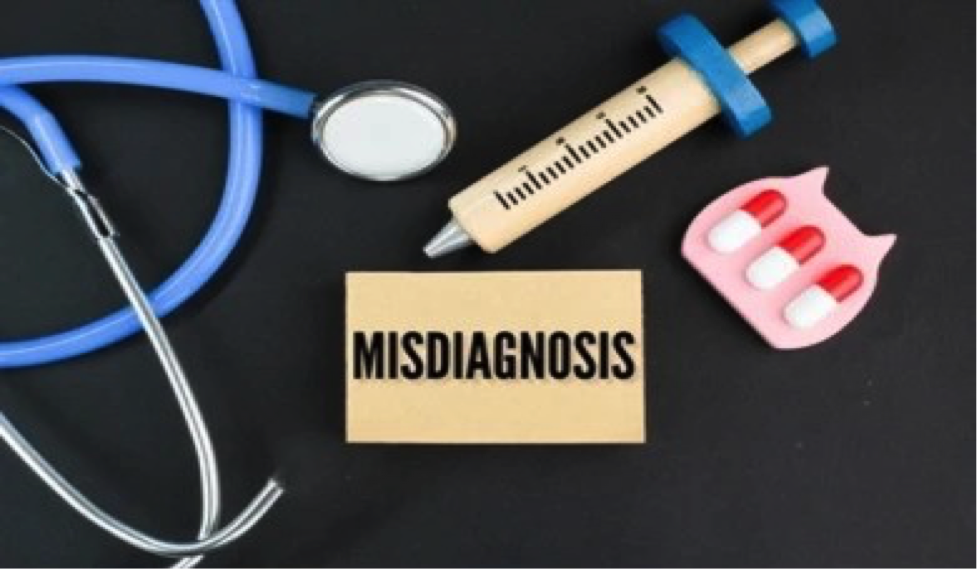
Your Health Magazine
4201 Northview Drive
Suite #102
Bowie, MD 20716
301-805-6805

More Cancer Awareness Articles
What You Can Do if Your Cancer is Misdiagnosed

Hearing the word “cancer” from a doctor is one of the most terrifying moments in a person’s life. But imagine if your doctor is telling you that you have cancer when you actually don’t. Or worse, being told you’re fine when you are not.
Unfortunately, both scenarios happen more often than people realize. A cancer misdiagnosis can delay treatment, lead to unnecessary procedures, or cost someone their chance at survival. Whether it may be a missed diagnosis, a wrong diagnosis, or a delayed one, the impact can be severe.
Here’s what you need to know and what you can do next.
How Cancer Misdiagnosis Happens
Doctors are human, and like all humans, they make mistakes. But when it comes to diagnosing cancer, the stakes are incredibly high. Some of the most common causes of misdiagnosis include:
- Misinterpreted lab results or imaging
- Failure to order appropriate tests
- Biopsy errors
- Miscommunication between medical professionals
- Incomplete patient history or ignored symptoms
Sometimes, the cancer is completely missed. Other times, a benign tumor is mistaken for cancer. It may lead to painful, unnecessary treatments like chemotherapy or surgery.
Two Common Types of Cancer Misdiagnosis
- False Negative – You have cancer, but the doctor says you do not. This leads to delayed treatment, giving the disease time to spread.
- False Positive – You do not have cancer but are told that you do. This can result in months of stress, as well as unnecessary and harmful treatments.
Both can cause emotional, physical, and financial harm.
What to Do if You Have Been Misdiagnosed
1. Get a Second Opinion
If you suspect something is wrong, or if you have been diagnosed and your treatment doesn’t seem to match your symptoms, go to another trusted doctor to get the right opinion. Don’t feel guilty or disrespectful; second opinions are common, especially with serious conditions like cancer.
2. Request All Your Medical Records
You have a legal right to access your medical records, test results, and imaging. Ask the doctor for all your medical records, especially if you are going to take legal action.
3. Start or Adjust Treatment Immediately
If the misdiagnosis led to a delay in treatment, act quickly. Consult a specialist to begin the correct course of treatment as soon as possible. Your current health comes first.
4. Consider Speaking to a Medical Malpractice Attorney
Not every mistake is malpractice, but if your doctor failed to meet the standard of care expected in their field and it caused you harm, you may have a case. An experienced malpractice attorney can review your records and let you know if you have grounds to sue.
Can You Sue the Healthcare Professional for Cancer Misdiagnosis?
Yes, you may be able to sue if:
- The misdiagnosis resulted from negligence or failure to follow proper procedures.
- The mistake led to physical harm, delayed treatment, or unnecessary treatment.
- You suffered emotional trauma, financial loss, or loss of life expectancy.
A successful medical malpractice lawsuit can help you recover compensation for:
- Medical bills (past and future)
- Pain and suffering
- Emotional distress
- Lost wages or diminished earning potential
- Wrongful death (if the patient has died due to the misdiagnosis)
Key Takeaways
- A cancer misdiagnosis can lead to delayed treatment, unnecessary procedures, or emotional trauma.
- Always seek a second opinion if you are unsure about a diagnosis.
- You have the right to request your full medical records.
- Legal action may be possible if negligence was involved.
- Time matters; do not delay in seeking medical or legal help.
- A qualified medical malpractice attorney can help determine your options and fight for compensation if needed.
Other Articles You May Find of Interest...
- Discover the Leading Cancer Treatment Centers Around the Globe
- Overcoming the Fear of Blood: Strategies for Managing Anxiety
- Are Skin Tags Cancerous? Unraveling the Truth About Cancerous Skin Tags
- Can Cancer Be Inherited? Exploring the Genetic Links
- Navigating the Complex World of Myeloproliferative Disorders
- Unlocking the Power of Sulforaphane for Optimal Health
- What Do Tiny Red Spots on Skin Indicate in Leukemia?














